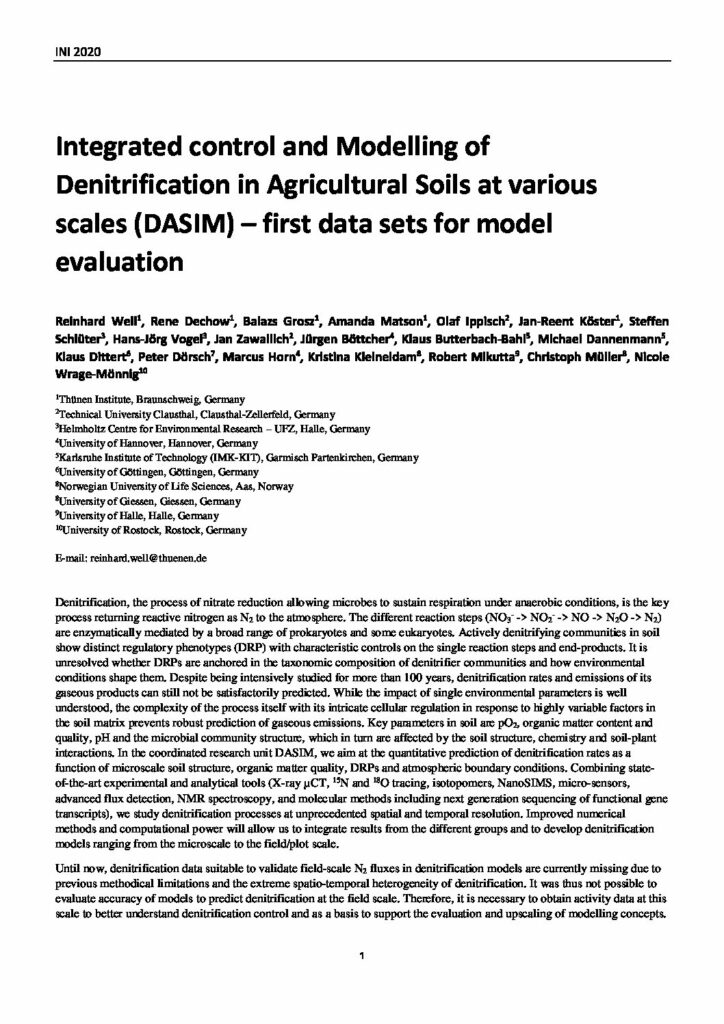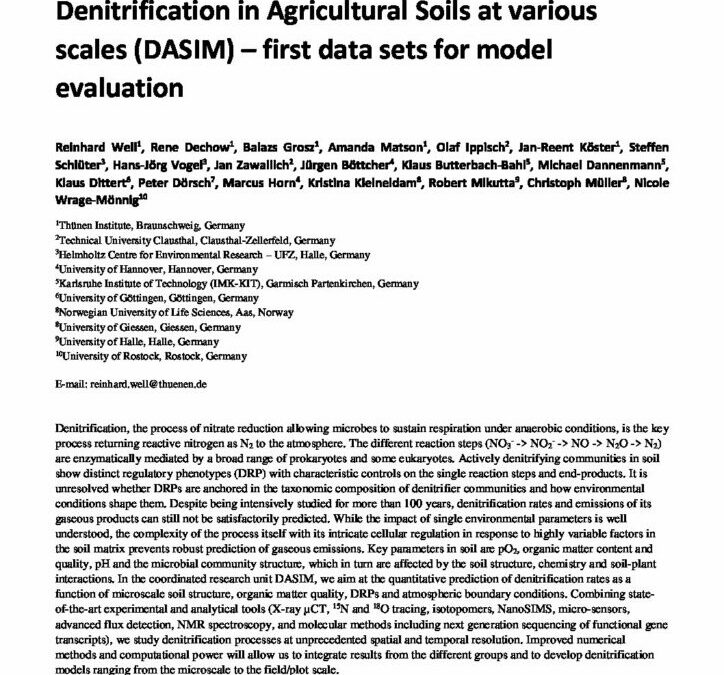Integrated control and modeling of denitrification in Agricultural Soils at various scales

Denitrification, the process of nitrate reduction allowing microbes to sustain respiration under anaerobic conditions, is the key process returning reactive nitrogen as N2 to the atmosphere. The different reaction steps (NO3 – -> NO2 – -> NO -> N2O -> N2) are enzymatically mediated by a broad range of prokaryotes and some eukaryotes.
Actively denitrifying communities in soil show distinct regulatory phenotypes (DRP) with characteristic controls on the single reaction steps and end-products. It is unresolved whether DRPs are anchored in the taxonomic composition of denitrifier communities and how environmental conditions shape them. Despite being intensively studied for more than 100 years, denitrification rates and emissions of its gaseous products can still not be satisfactorily predicted.
While the impact of single environmental parameters is well understood, the complexity of the process itself with its intricate cellular regulation in response to highly variable factors in the soil matrix prevents robust prediction of gaseous emissions. Key parameters in soil are pO2, organic matter content and quality, pH and the microbial community structure, which in turn are affected by the soil structure, chemistry and soil-plant interactions. In the coordinated research unit DASIM, we aim at the quantitative prediction of denitrification rates as a function of microscale soil structure, organic matter quality, DRPs and atmospheric boundary conditions. Combining stateof-the-art experimental and analytical tools (X-ray µCT, 15N and 18O tracing, isotopomers, NanoSIMS, micro-sensors, advanced flux detection, NMR spectroscopy, and molecular methods including next generation sequencing of functional gene transcripts), we study denitrification processes at unprecedented spatial and temporal resolution.
Improved numerical methods and computational power will allow us to integrate results from the different groups and to develop denitrification models ranging from the microscale to the field/plot scale.
